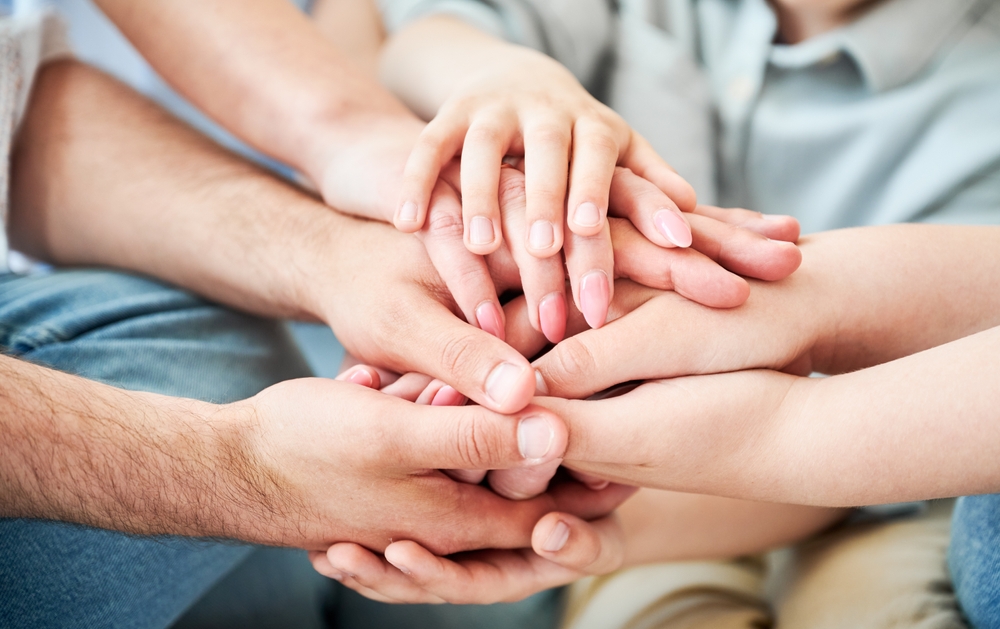Last Updated:
June 20th, 2025
Why family support is so crucial in addiction recovery
Addiction can feel incredibly isolating, but when someone decides to get help, knowing their family is still in their corner can make all the difference. Recovery isn’t a one-person job. While the individual must do the hard inner work, the presence of a supportive, stable family system can significantly increase their chances of staying clean and moving forward.
Here’s why the role of a family unit can be so important in addiction recovery:
- A sense of belonging makes recovery feel possible
When someone is addicted, shame can take hold. They may feel they’ve ruined everything and burned too many bridges. But when family stays involved, it reminds them they’re not alone and that they still matter. That sense of belonging can break through addiction’s grip and make recovery feel possible.
- Families help reinforce the work done in treatment
In therapy, people learn to cope, communicate and face emotions they once avoided. But that progress can stall if they return to a home where nothing has changed. Families who join support groups or attend therapy themselves can help carry that progress forward. They create an environment that supports recovery, not undermines it.
- Emotional stability is a powerful anchor
Early recovery is unpredictable. Cravings, mood swings and setbacks are common. When family members stay calm and steady, it gives their loved one something solid to hold onto during uncertain times.

How to support a loved one in recovery
Watching someone you care about fight their way through addiction and take steps toward recovery can fill you with pride. It’s brave, it’s hard, and you want to be there for them every step of the way. But at the same time, you might wonder if your support could be too much or worry that you don’t fully understand what they’re going through. That’s a valid concern, and you’re not the first to feel this way.
The good news is that support doesn’t need to be perfect. In fact, the smallest gestures, when done with care and consistency, can make the biggest difference. Here are some real ways to support a loved one in recovery, along with examples of how it can play out in everyday life.
Example:
When Tom came home from a tough group therapy session, his sister Anna didn’t offer suggestions or push him to explain everything. She made tea, sat next to him and said, “Rough day?” Tom nodded, and after a long pause, he opened up more than he ever had before.
Example:
When Jake told his friends he couldn’t join them at the pub anymore, his mate Callum didn’t question it. Instead, he invited Jake for weekend hikes. Over time, Jake felt comfortable and supported, and their friendship stayed strong.
Example:
After her partner Liam started rehab for alcohol addiction, Priya read up on withdrawal symptoms, triggers and relapse prevention. When Liam had a rough night and snapped at her, she didn’t take it personally. She recognised it as part of the process and supported him through it.
Example:
On the one-month anniversary of her brother Ravi’s sobriety, Meera brought home his favourite takeaway and a card that simply said, “Proud of you.” Ravi was surprised and deeply moved. He’d been so focused on surviving each day that he hadn’t realised how far he’d come.
Example:
Emily always used to call her mum, Jean, after every therapy session. But one week, Jean didn’t call. Instead, she left a note on the table: “You’re strong. You’ve got this. I’m here if you want to talk.” Emily smiled. It was the push she needed to start standing on her own.

Are families given their own kind of support?
Of course, the focus is on your loved one at the moment. Everything revolves around them, and it can be difficult to remember to look after yourself and other family members during this time. Many rehab centres and addiction recovery programmes understand how challenging this can be and are here to offer you the support you deserve.
Most offer weekly family therapy or support groups in various settings, whether in person or online. These sessions are led by experienced staff and provide a safe space where you can speak openly and start to understand what your loved one is going through.
Support groups give you the chance to:
- Understand how addiction develops and why it continues
- Protect your own mental and physical health
- Set clear and manageable boundaries
- Stop carrying guilt or responsibility that doesn’t belong to you
- Support your loved one after treatment
- Handle the possibility of relapse with clear steps in mind
If you’re interested in these sessions, contact Addiction Helper for more information on support groups in your area or a part of the addiction recovery programme your loved one may have already enrolled on.
What are the next steps?
Whether you’re exploring rehab options for your loved one or simply trying to cope with the emotional weight of it all, know that Addiction Helper is here to support you.
We provide free, confidential advice tailored to your situation, whether you’re looking for the right rehab centre, want to understand treatment options or just need someone to talk to. Our trained advisors are available to guide you through every stage, from making that first call to preparing for what comes next.
Call us today for compassionate, expert help
Our compassionate team are ready and available to take your call, and guide you towards lasting the lasting addiction recovery you deserve.
Frequently Asked Questions
(Click here to see works cited)
- McCrady BS, Flanagan JC. The Role of the Family in Alcohol Use Disorder Recovery for Adults. Alcohol Res. 2021 May 6;41(1):06. doi: 10.35946/arcr.v41.1.06. PMID: 33981521; PMCID: PMC8104924.
- Cai W, Wang Y. Family Support and Hope among People with Substance Use Disorder in China: A Moderated Mediation Model. Int J Environ Res Public Health. 2022 Aug 9;19(16):9786. doi: 10.3390/ijerph19169786. PMID: 36011426; PMCID: PMC9408460.
- Substance Use Disorder Treatment and Family Therapy: Updated 2020 [Internet].Treatment Improvement Protocol (TIP) Series, No. 39. Rockville (MD): Substance Abuse and Mental Health Services Administration (US); 2020.

